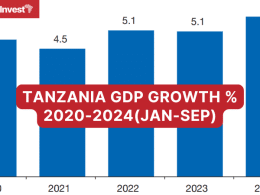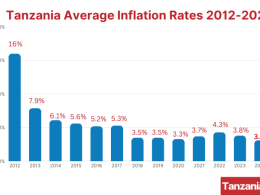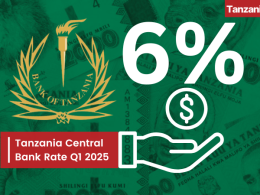Corporate tax is a cornerstone of Tanzania’s business regulatory framework, impacting all companies operating within the country. Whether you’re a local entrepreneur or an international corporation, understanding corporate tax regulations is critical to ensuring compliance, optimizing tax liabilities, and benefiting from available incentives.
This guide provides a detailed overview of Tanzania’s corporate tax system, including rates, incentives, compliance requirements, and updates for 2024.
This guide has been prepared with the expertise of AFRIQ Consultants, an advisory firm specializing in tax compliance, business consultancy, and financial management.
With extensive experience, AFRIQ Consultants helps businesses navigate the complexities of Tanzania’s taxation framework while maximizing the benefits of available tax incentives.
Introduction to Corporate Tax in Tanzania
Corporate tax, also known as business tax or company tax, is levied on the profits of entities operating within Tanzania. It applies to both resident and non-resident companies conducting business in the country. The tax is governed by the Income Tax Act of 2004 and administered by the Tanzania Revenue Authority (TRA).
Corporate Tax Rates
Tanzania’s standard corporate tax rate is 30% for resident corporations and permanent establishments (PEs) of non-resident corporations.
Reduced Corporate Tax Rates
Reduced rates and exemptions are available for specific types of businesses through targeted incentives.
Tanzania Investment Centre (TIC) Incentives
TIC facilitates investment in strategic industries with reduced corporate tax rates:
- 20% corporate tax rate for the first five years for projects in pharmaceuticals, textiles, and leather product manufacturing.
- 10% corporate tax rate for the first five years for the assembly of motor vehicles, tractors, fishing boats, or outboard engines.
Export Processing Zones Authority (EPZA) Incentives
EPZA supports export-oriented businesses with comprehensive tax relief:
- 10-Year Corporate Tax Holiday: Full exemption from corporate tax for the first ten years of operation.
- Withholding Tax Exemption: No withholding tax on rent, dividends, or interest for the first ten years.
- Duty-Free Imports: Exemptions on capital goods, raw materials, and other inputs.
Newly Listed Companies
Companies listed on the Dar es Salaam Stock Exchange (DSE) that offer at least 30% of their shares to the public enjoy a reduced tax rate of 25% for three consecutive years.
Alternative Minimum Tax (AMT)
Companies with three consecutive years of unrelieved tax losses are subject to an AMT of 0.5% on turnover in the third year. Exemptions include agricultural companies, tea processors (from July 2024 to June 2027), and businesses in health or education.
Tax Administration and Compliance
The Tanzania Revenue Authority (TRA) oversees tax administration and ensures compliance through:
- Quarterly provisional tax returns due within three months after the end of each quarter.
- Final tax returns must be filed within six months after the financial year ends.
- Special deadlines for public entities, where filing and payment must occur within nine months of the financial year-end.
Special Tax Regimes
Presumptive Tax Regime
Designed for resident businesses with turnover under TZS 100,000,000. Progressive tax rates apply:
- 0% tax on turnover up to TZS 4,000,000.
- 3.5% tax on turnover above TZS 11,000,000.
Gaming Businesses
Taxed under the Gaming Act, with tailored rates and obligations.
International Taxation
Tanzania taxes resident companies on worldwide income and non-resident companies on Tanzania-sourced income. Key considerations include:
- Withholding taxes on dividends, interest, and royalties paid to non-residents.
- Transfer pricing regulations that follow OECD principles to ensure fair pricing in transactions between related entities.
- Tax treaties that Tanzania has established to reduce double taxation and lower withholding tax rates.
Conclusion
Understanding Tanzania’s corporate tax system is essential for businesses looking to invest or operate in the country. While the standard rate of 30% applies to most corporations, various exceptions, reduced rates, and incentives exist to promote economic development and attract foreign investment. Compliance with tax regulations, including timely filing and payment of taxes, is crucial to avoid penalties and maintain good standing with the Tanzania Revenue Authority.
For multinational corporations and foreign investors, navigating Tanzania’s tax landscape may require expert guidance to ensure compliance and optimize tax positions. Consulting with tax professionals or specialized advisory services can help businesses make informed decisions and develop effective tax strategies in this dynamic East African market.
Contact
For professional assistance with corporate tax in Tanzania, contact AFRIQ Consultants. With years of experience in tax advisory and business consulting, AFRIQ Consultants ensures compliance and helps businesses optimize their tax strategies to meet regulatory requirements.
Visit www.afriqconsultants.co.tz, email info@afriqconsultants.co.tz, or WhatsApp +255 767 892 714.










